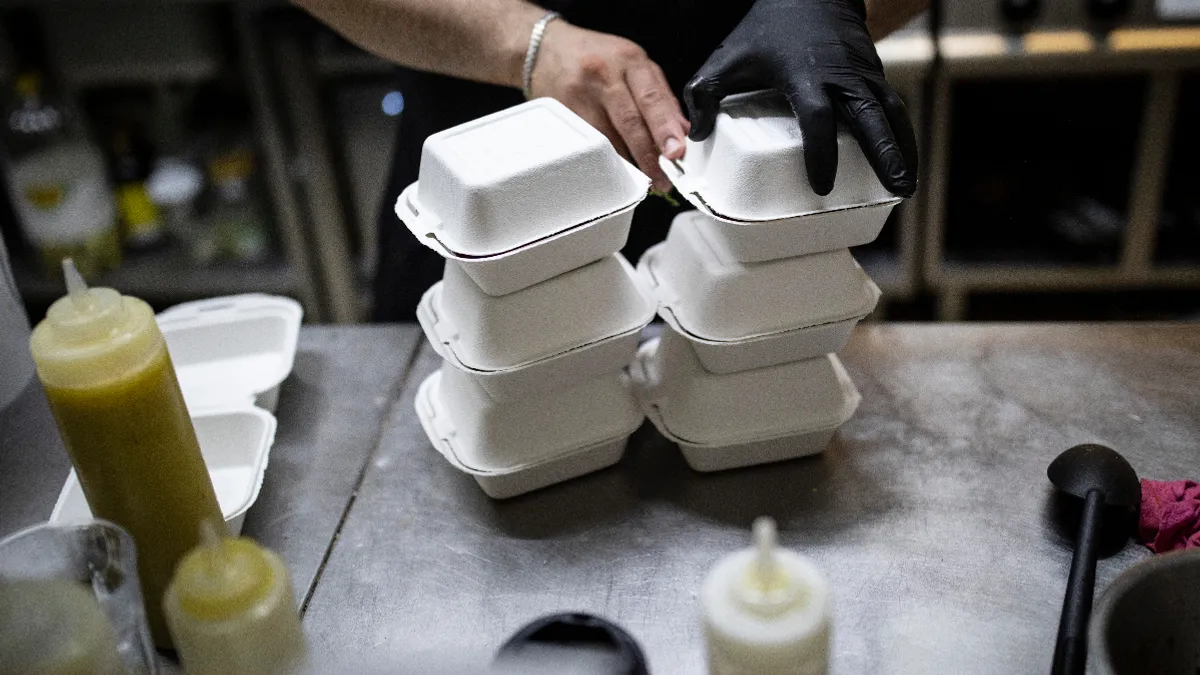Dive Brief:
- U.K.-based online ordering and delivery company Foodhub plans to expand in the U.S. this year, starting in Louisiana and targeting restaurants in New Orleans, Baton Rouge and Lafayette, The Acadiana Advocate reports. Foodhub, founded in 2017, currently has over 25,000 restaurant partners in the U.K., Ireland, Australia, New Zealand, Guatemala and Mexico.
- The company is focused on Louisiana as its starting point because its city sizes, densities and volume of independent restaurants closely mirror trends in the U.K.
- Like most delivery services, Foodhub has grown materially throughout the past year, with orders through its app up over 40% April 2020 to April 2021. Still, the U.K. food delivery market overall rose 128% throughout the past year, and Foodhub's market share remained about the same while larger rivals like Uber Eats and Deliveroo gained 9% and 7% of the segment, respectively.
Dive Insight:
In March, Foodhub announced a fundraising target to raise 100 million pounds (about $142 million) to accelerate its international growth plans, and its U.S. entry seems to be part of that objective. The U.S. market, however, is hypercompetitive, with several well-established players dominating the space. Shares of sales through delivery is also expected to increase 23% in 2025, an uptick from pre-pandemic forecasts of 15%, according to research from Incisiv.
DoorDash commands U.S. market share at 56%, according to Second Measure, with Uber Eats at 21%, Grubhub at 18% and Postmates at 5% as of April. Foodhub will be planting its initial flag in Louisiana-based delivery firm Waitr's territory. Waitr itself is on a growth trajectory, expanding into more markets and verticals, including alcohol and cannabis delivery.
Foodhub could cause disruption in the U.S. market because it's modeled differently than traditional players. The company offers restaurants a personalized website and app, marketing support, a point-of-sale system and customer service support and charges a 3% transaction fee. It charges 0% commission.
High commission fees from third-party aggregators have been a significant pain point for both consumers and restaurants, and several U.S. municipalities have moved to cap those fees. In fact, 16% of diners believe platforms like DoorDash, Uber Eats and Grubhub do more harm than good for restaurants, and 37% are motivated to order directly from restaurants to support them, according to a SevenRooms report.
"Restaurants are handing over their hard-earned profits to extremely costly, commission-based systems. We're one of only a few multi-channel food ordering solutions that offers a 0% commission model," CFO Mohamed Chaudry told The Acadiana Advocate.
Diner and operator frustration with steep third-party commission fees already seems to be sparking change. DoorDash, for example, updated its pricing model in April for local restaurants, offering three different delivery commission price points depending on how much marketing support a restaurant wants and the size of its delivery area. The plans are priced at 15%, 25% and 30% commissions.
Still, this tiered structure may not be as enticing when an aggregator with 0% commission fees hits the market. According to Retail Times, Foodhub's model can save the average restaurant partner approximately 30,000 pounds, or roughly $42,500, a year. If Foodhub finds solid footing in Louisiana and expands from there, that could be a threat to established American delivery players.












